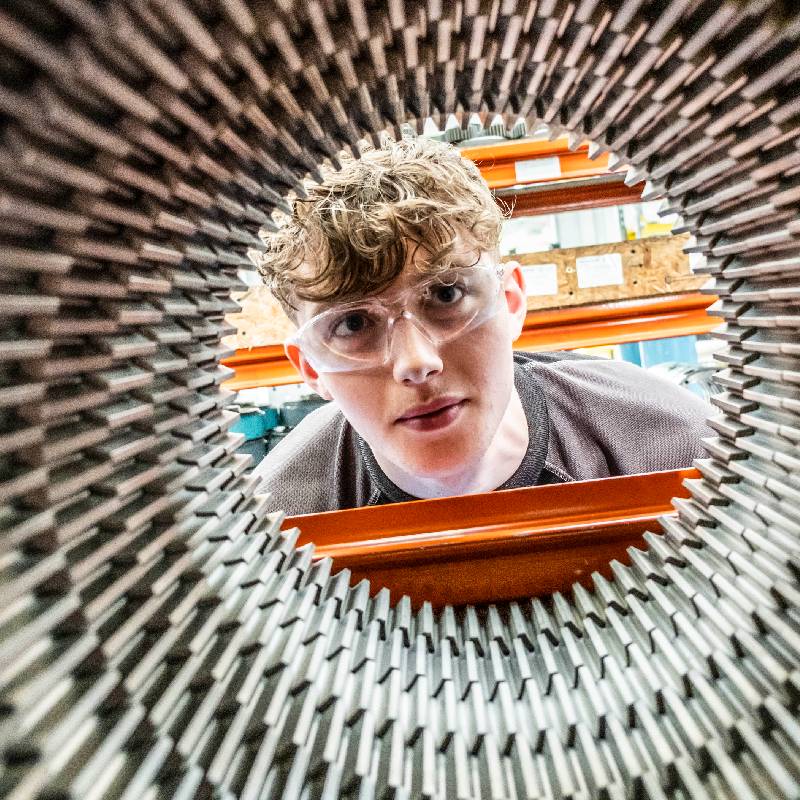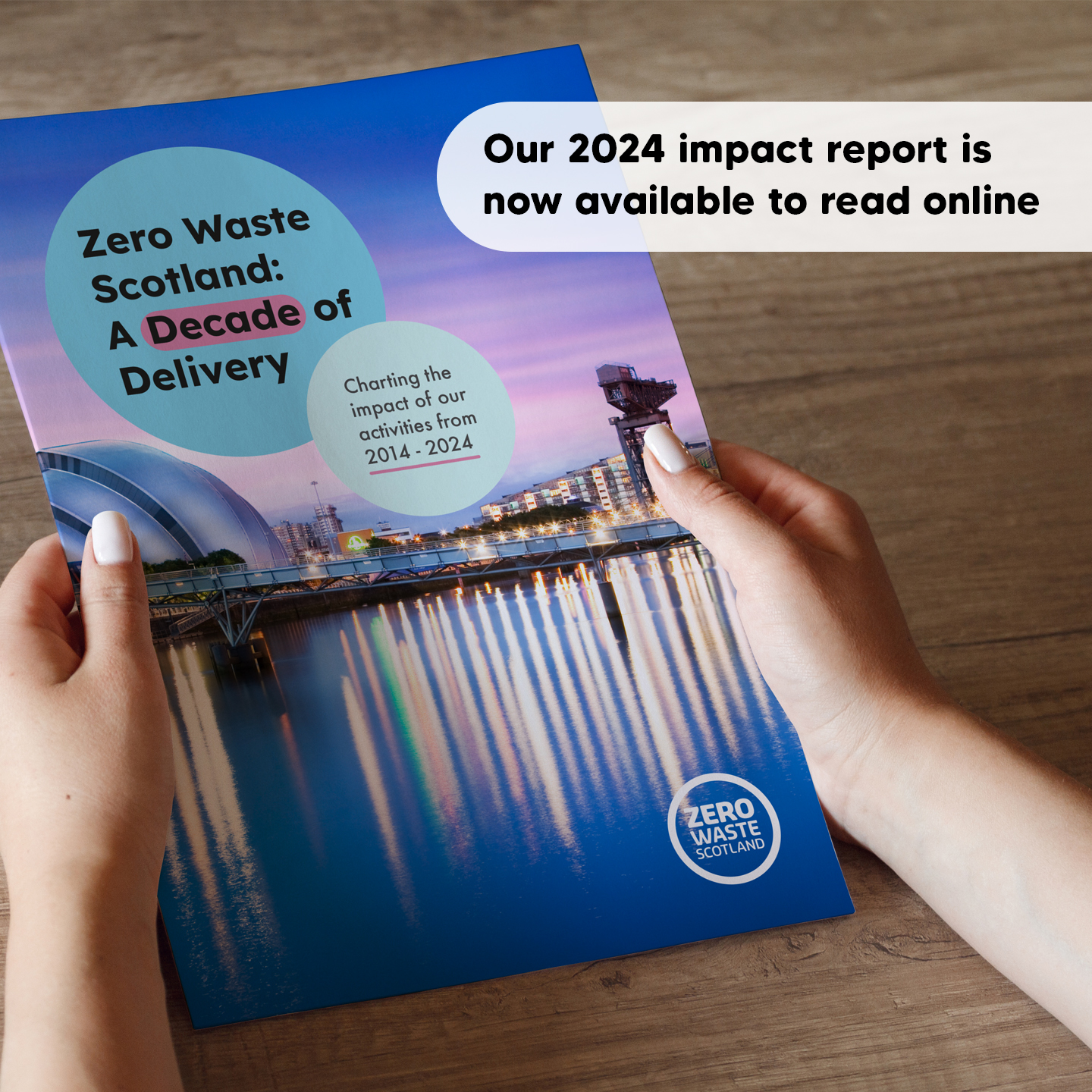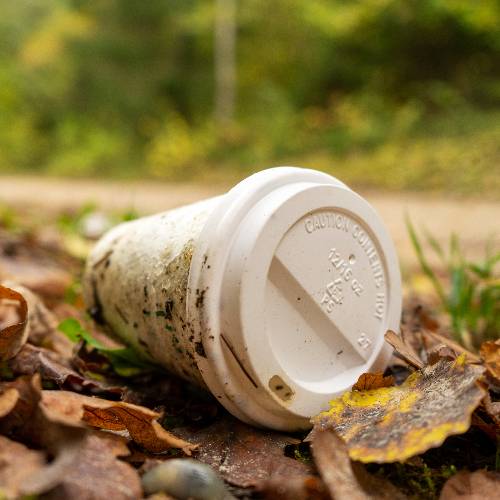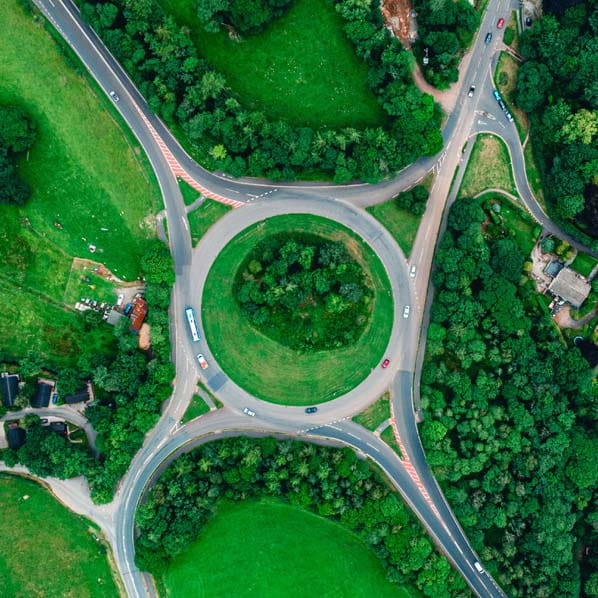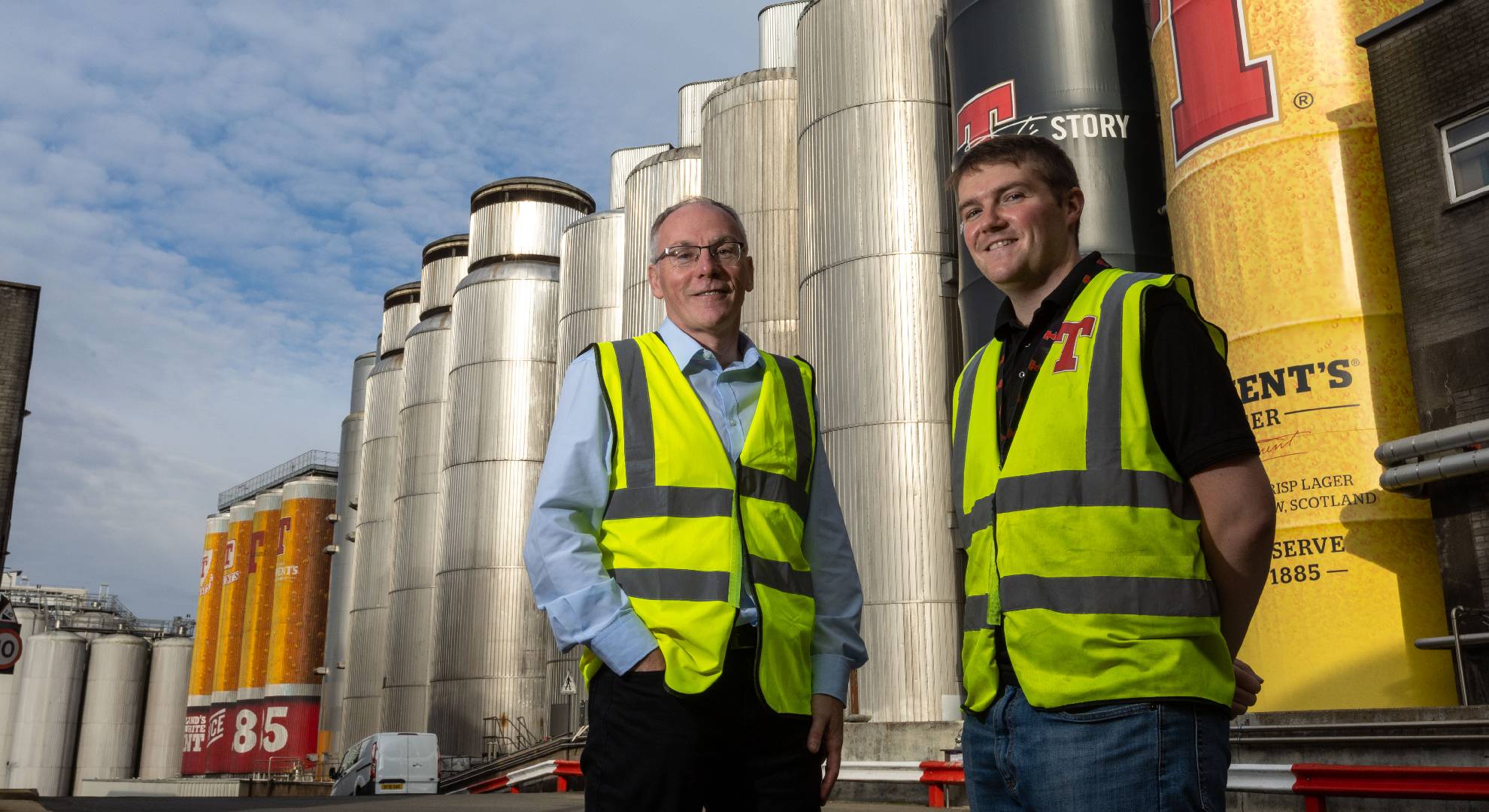
Business support sees hopps of success for iconic Glasgow brewery
Tennent’s Caledonian Breweries, one of the oldest in Scotland and the nation’s most loved lager, is brewing into the future with pioneering projects that champion sustainability.
A planet-first business
A planet-first approach is embedded into everything Tennent’s do, and for a brand that’s been around for 500 years, the business has a lot to be proud of. Collaborating with Zero Waste Scotland’s Circular Economy Business Support service, the Tennent’s team conducted a business-wide circular economy assessment, with findings shaping the brewer’s circular approach moving forward.
This process provided council and validation to a series of circular projects already underway, giving Tennent’s the reassurance that the business was going in the right direction with its practices. Circular economy and leading practices are embedded into everything Tennent’s do, and as a testament to this, the brewer won a 2023 VIBES Award, Vision in Business Scotland Award – Best Large Business.
The Wellpark brewery site in Glasgow is powered by 100% renewable electricity and in the last year has been self-sufficient with its carbon capture capability, resulting in zero impact on the local environment. Committed to using 100% Scottish Barley and fresh highland water from Loch Katrine to keep raw material road miles down, Tennent’s mixes the locally sourced grain and water together to extract the sugars.
Once this process is complete, the team removes the barley and then mixes the liquid with yeast to start fermentation. The natural barley and yeast by-products from making the lager are then reused and given to local farmers as animal feed to avoid any unnecessary waste.
In addition to making the brewing stage as circular as possible, solar-assisted delivery vans ship kegs to pubs across Scotland to avoid clocking up air miles, and Tennent’s recent switch to lightweight cans has reduced the heat requirements in production and lowered the transportation cost.
If customers shop directly with Tennent’s, the brewer pledges to offset the carbon emissions of every shipment by purchasing the equivalent road miles in carbon credits. Martin Doogan, Head of Engineering and Technical at Tennent’s, has a passion for sustainable business practices and reusing where possible.
He said: “Tennent’s has a circular approach to all stages of its production, and the team are continuously reviewing these practices alongside anticipating what the future of brewery looks like."
The results
“Zero Waste Scotland’s CEBS service helped us look at new opportunities and ideas that we could implement in 15 years’ time. This gave us the opportunity to engage with staff and look for fresh approaches to something we’ve been doing for centuries.
“We’ve looked at our supply chain, talked to our suppliers and customers to look at ways we can reduce the environmental impact we have on our planet. Tennent’s was the first brewer to join the UK Plastic Pact and has removed single-use plastic from the packaging of canned products by offering a cardboard alternative, taking 150 tonnes of plastic out of circulation.
Kegs that are shipped out daily to customers are reused and recovered, recleaned and refilled with Tennent’s product, keeping circularity at the core.” Thomas McIvor, Environmental Engineer at Tennent’s Wellpark site, expands on the additional circular models in place. He said: “The fermentation process when making lager produces a by-product of CO2, which we take, capture, treat and store for carbonating the beer at the end of the product line.
This allows us to be 95% self-sufficient in CO2, and we’ve successfully removed about 4,000 tonnes of CO2 from the atmosphere every year. “A couple of years ago we installed an on-site anaerobic digestion plant which treats all the wastewater from the brewery.
This cleans up the wastewater, and as a by-product of this treatment, biogas is produced. We store and use on-site for our biomass boiler that heats 8% of our heat demand and removes excess natural gas for on-site heating and the carbon associated with this.” Martin finds a collaborative approach is at the core of circular success, and he encourages businesses and customers to help Scotland’s Circular Economy.
He explained: “If you’re a business looking at a circular approach, look at your value chain, spot the opportunities that may be there, and although you won’t achieve everything overnight, it’s a good place to start. Share your learnings, expertise, and goals, and explore how you can collaboratively work together to reach them. Tennent’s customers can help us directly by correctly recycling the cans and cardboard carriers when purchasing and enjoying lager at home.”
“We’ve had a hugely positive experience with Zero Waste Scotland, who gave us council, learnings, insights and ultimately furthered the team’s understanding and approach, which has been ingrained in the Tennent’s culture.”


